By OpenLearning
min readRapid and fundamental changes to the economy are disrupting labour markets worldwide, and with that, comes the increased demand for new types of skills—and for ways to learn them. Last year alone, 180 million lifelong learners enrolled in online courses to learn new skills.
Employers are also beginning to hire based on competencies, in addition to—or instead of—conventional degrees. For the workforce, there is a need for more flexible, targeted options for learning and upskilling.
Micro-credentials are filling a gap in the market by providing an upskilling solution through localised, industry-relevant and bite-sized learning pathways.
At the OpenLearning Micro-credential Symposium and Micro-credential Week 2021 for Malaysia, we had the opportunity to learn from Malaysian education institutions, training providers and policymakers who are leading the way in delivering micro-credentials.
The week-long virtual conference featured over 15 panel discussions, workshop sessions, and partner showcases surrounding the theme of “Micro-credentials: Driving Innovation, Delivering Outcomes”.
The Symposium was officiated by Prof. Ir. Dr. Khairul Salleh Mohamed Sahari, Deputy CEO (Quality Assurance) at the Malaysian Qualifications Agency, who reaffirmed the importance of micro-credentials for Malaysians.
“At MQA, we believe that micro-credentials are the way forward for Malaysian skills development and have been getting a positive response from professional bodies, industry, and academia alike. Following on from the latest Guidelines to Good Practices released in August 2020, we are drafting the GGP:APEL2022—for which OpenLearning is a partner and stakeholder.”
Prof. Ir. Dr. Khairul Salleh Mohamed Sahari
Deputy CEO | Malaysian Qualifications Agency
During the Symposium, we discussed the challenges, opportunities and interoperability in implementing micro-credentials, with its increasing global relevance a recurring theme.
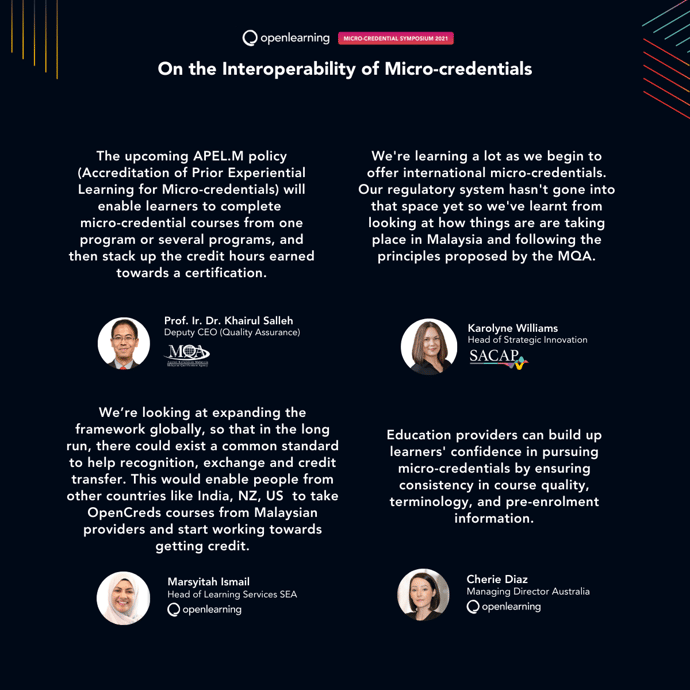
Several higher education institutions have launched and scaled accredited micro-credential programs in specialised skill areas, such as:
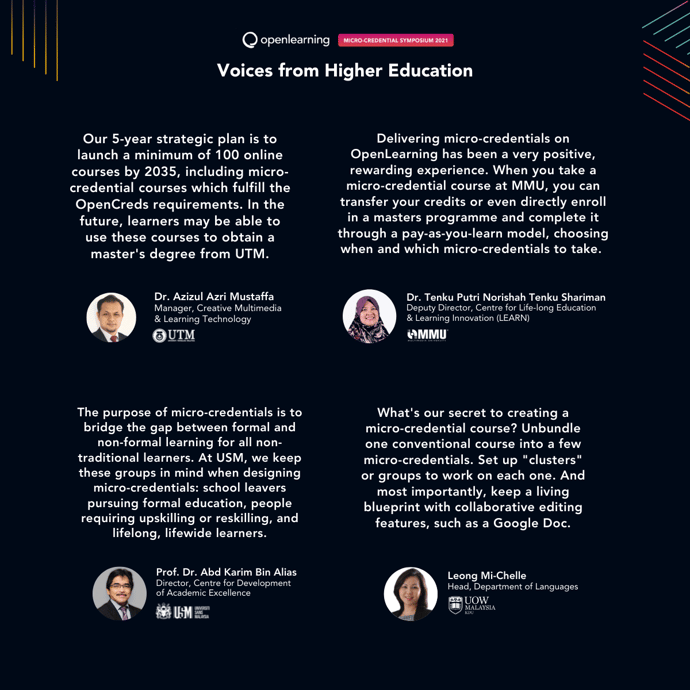
A common focus among presenters from the higher education sector was the ability for learners to take up specific micro-credentials in the skills or competencies they require, and to then ‘stack’ them up in leading towards a larger qualification pathway such as a master’s degree.
For example, SACAP Global offers credit-bearing micro-credentials that lead to their existing programs on psychology, communication, business management and human resources programmes, while Multimedia University uses a pay-as-you-learn model for learners to complete micro-credentials at their own pace towards an MBA or Masters of Engineering:
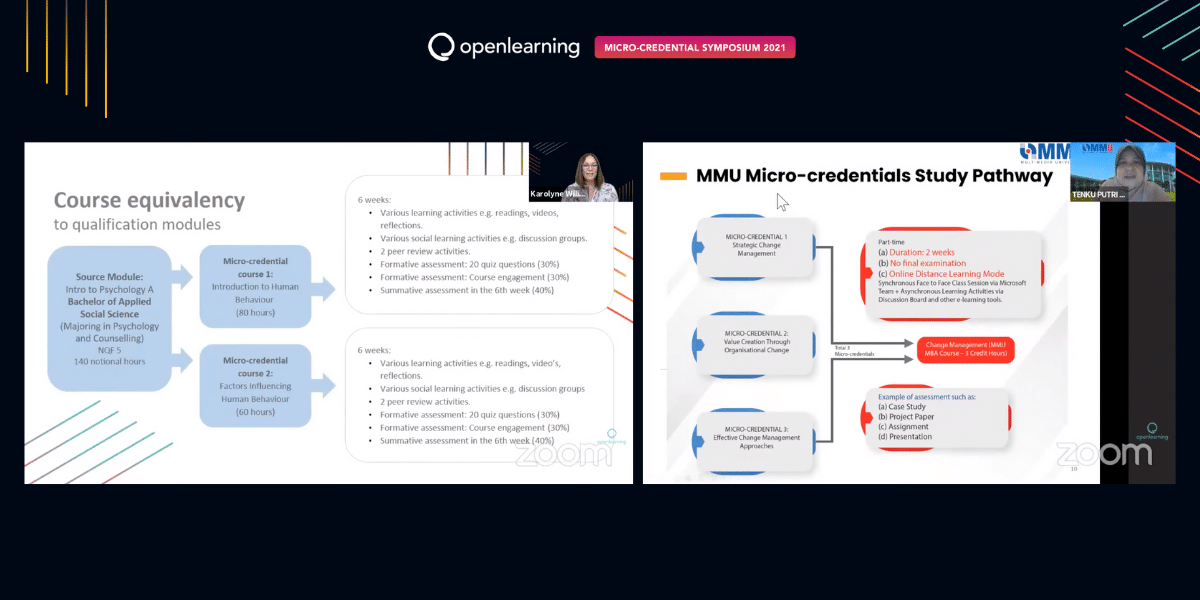
Malaysian trainers have also begun to develop their own micro-credential courses for the training industry.
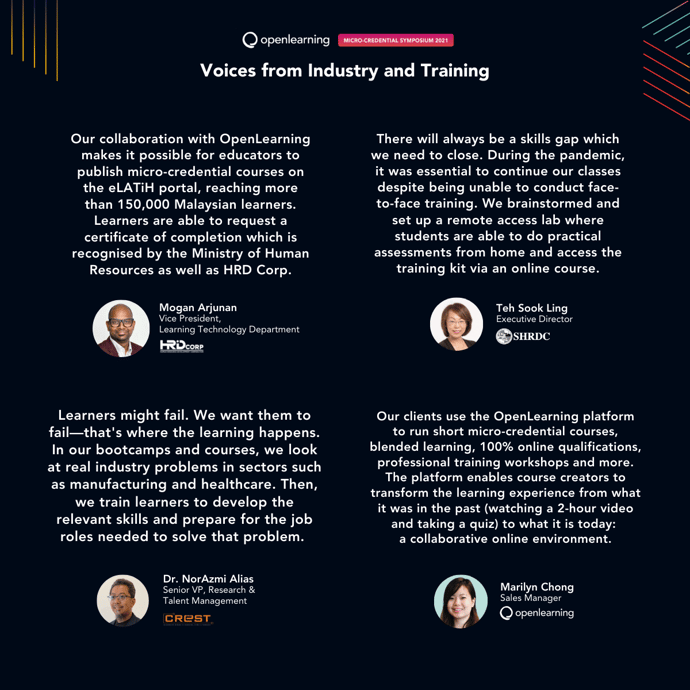
One such training provider is the Selangor Human Resource Development Centre, who are launching a series of micro-credentials for Smart Factory competency-based training. Their unique hybrid approach uses Remote Online Training labs for practical assessments, in addition to online learning materials.
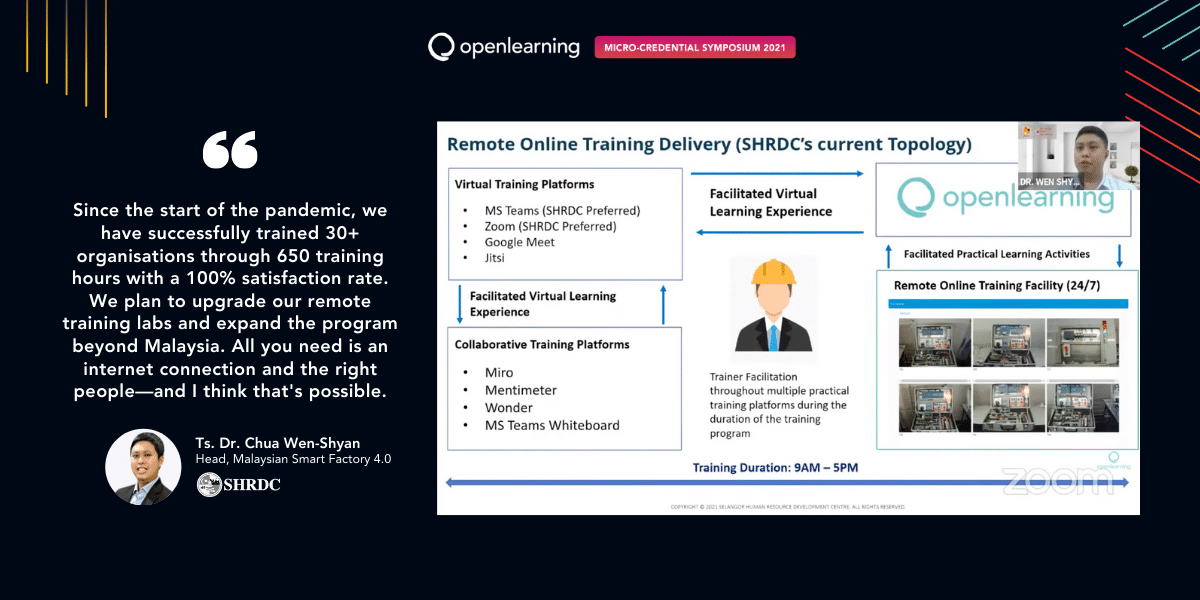
Meanwhile, SMC Trainers Malaysia showcased the development of their Train The Trainer (TTT) micro-credentials for upskilling Malaysian trainers. The program, which is recognised by HRD Corp, an agency under the purview of the Ministry of Human Resources Malaysia will also be offered as an OpenCred as outlined in the OpenCreds for Malaysia framework.
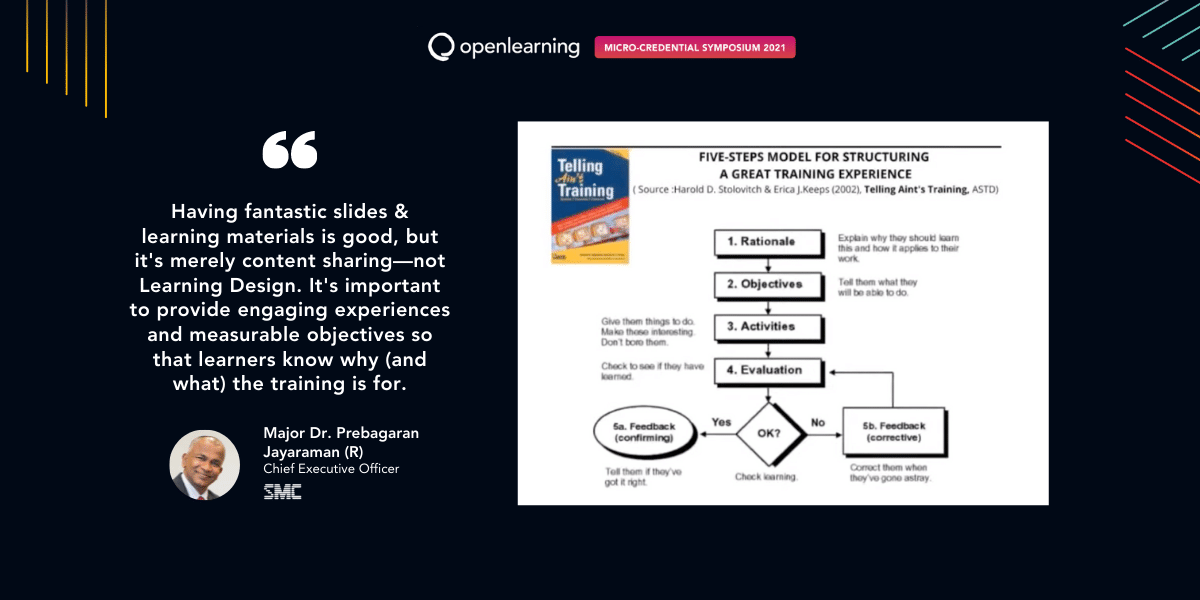
Innovative approaches in building industry-academia partnerships for developing cross-sector micro-credentials were also highlighted by our partners:
As an extension of our support for education and training providers looking to build market-leading micro-credentials, the Symposium included 4 workshops to help those interested in getting started.
These include workshops on how to collect, assess, and certify evidence of learning in a micro-credential course. Watch the recordings here:
A workshop on ‘OpenCreds Course Quality and Criteria’ provided a step-by-step guide for beginners for developing an OpenCred micro-credential on OpenLearning aligned to the Malaysian Qualifications Agency’s (MQA) Guidelines to Good Practices: Micro-credentials.
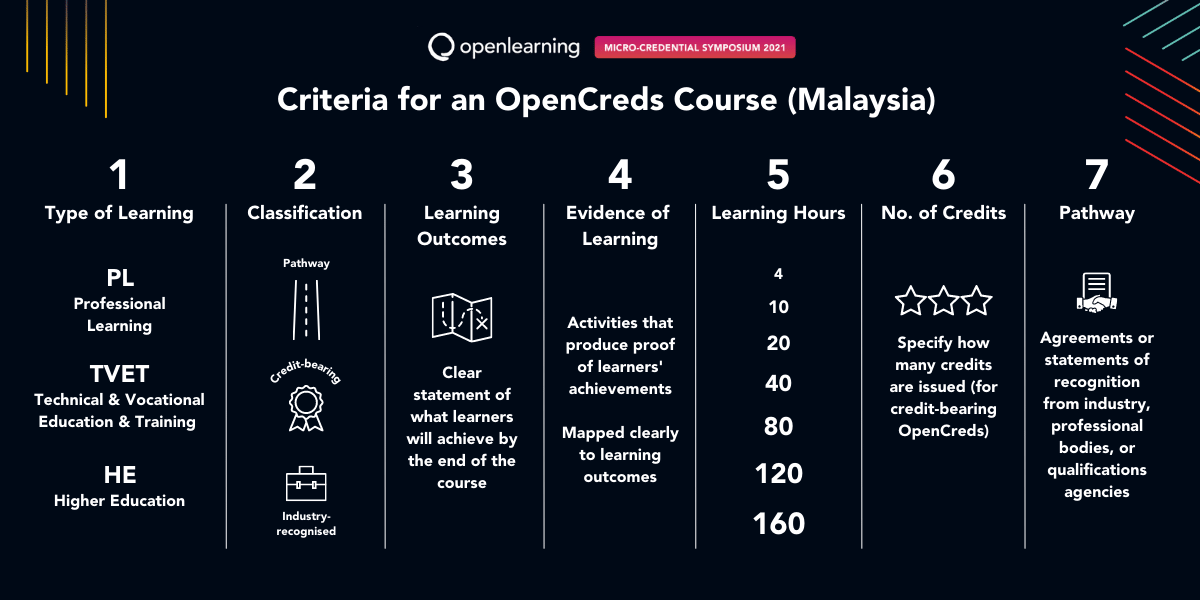
[Read more about micro-credentials on the OpenLearning Blog.]
One unique feature of a micro-credential course is the ability to issue digital credentials upon course completion. Digital credentials typically have their own unique URL and are a shareable, verifiable, stackable alternative to conventional certificates or e-certificates.
Accredible is OpenLearning’s partner in equipping OpenCreds courses with a digital credentialing system. A walkthrough of the Accredible-OpenLearning integration was given during the symposium to highlight the opportunities for education and training providers to offer recognition for their micro-credential courses.
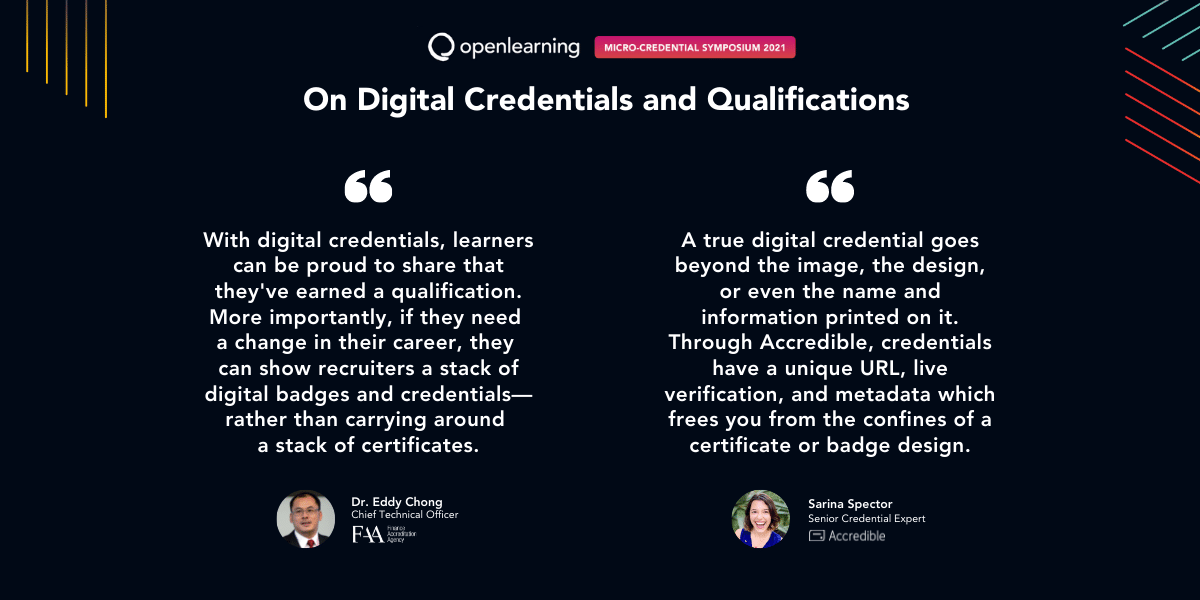
Participants were encouraged to access OpenLearning resources and support for micro-credentials, such as the OpenCreds for Malaysia framework. The framework guides education and training providers in delivering cross-sector micro-credentials that are aligned to the Malaysian Qualifications Agency’s (MQA) Guidelines to Good Practices: Micro-credentials.
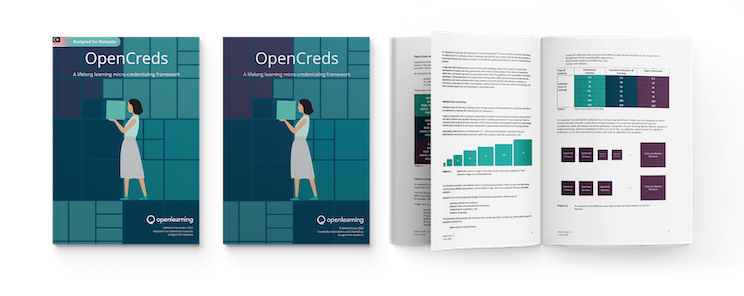
OpenLearning also hosts online courses, on-demand training, virtual events and webinars which explore the latest strategies, best practices and knowledge-sharing.
Interested parties may apply for the OpenCreds for Malaysia Investment Fund—a RM600,000 support fund for providers to build and launch market-leading micro-credentials.
To download the OpenCreds for Malaysia framework, and to access all session recordings and resources from the OpenLearning Micro-credential Symposium 2021, head to the Micro-credential Symposium Resource Hub.
